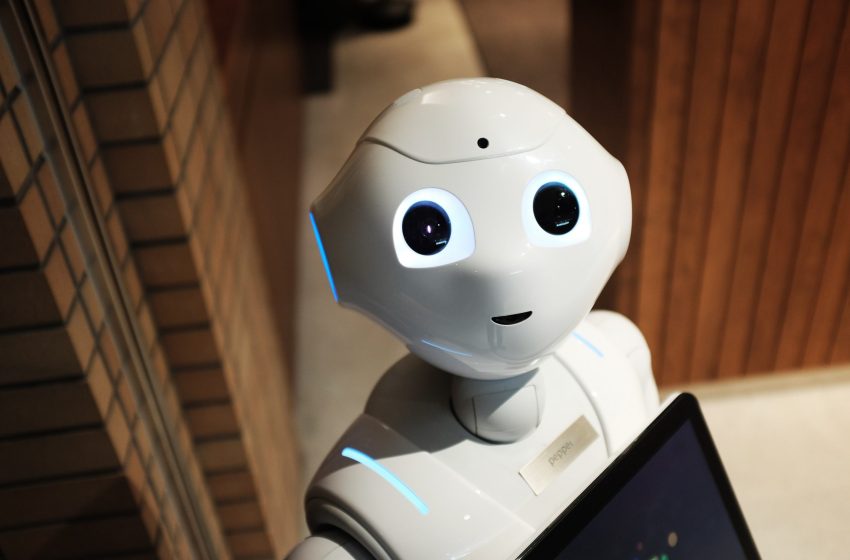
TRANSFORMING SOCIETY & THE WORKPLACE THROUGH EDUCATION
By Pascal Bornet
As we enter into “the fourth industrial revolution,” as described by World Economic Forum founder and executive chairman, Klaus Schwab, we see a disruption in society as a result of the use of technology and intelligent automation to increase productivity. Many workers have already been displaced and that number will continue to grow exponentially. That is unless societies around the world can shift their perspective regarding the role of workers, as well as the elemental objectives of education.
HOW DO WE GET THERE?
Governments must take the lead in changing the way that we see the future of society and the workplace. Companies and institutions will also play a significant role as the employment landscape changes from the one we have grown accustomed to.
The path forward requires certain priorities: first and foremost to ensure that a fundamental review of the educational system is urgently addressed. Furthermore, technology must be galvanized within the workplace in a way that benefits employees. They will need to be convinced that IA implementation will create opportunities and benefits for them personally. Additionally, when IA does affect a job or department, the roles of the affected workers need to be assessed and expanded, which may require further training of that personnel.
REDEFINING EDUCATION
Reimagining and redefining education is the key to a prosperous society and workforce. To move forward effectively, a significant investment of ingenuity and resources will need to be made in education, not just within the school systems, but also for workers of every age.
If we look back to the original Greek schools, they were a place for discussion and reflection and finding purpose. This has changed over time into a view of education as a way to prepare students for a life of repetitive, and often tedious, work. Sir Ken Robinson, an expert in the importance of creativity in schools, pointed out that education should be personalized, not standardized. He championed the belief that creativity is a crucial part of the human experience and should be showcased in every aspect of life, including work.
We have an opportunity now to return to those original tenets. To focus on the creative skills that automation cannot replicate, but where humans excel. To design a society where people are engaged and fulfilled in their work. To have a better balance between our work and personal lives. To construct a world where people do not define themselves by their job title.
A NEW APPROACH TO LEARNING
Finland, a pioneer in education, has looked to the future and chosen to develop the 4 Cs in their students: creativity, critical thinking, collaboration, and communication. They recognize that the school environment needs to engage the students on a personal and social level and also allow them to experience and focus on skills that encourage lifelong learning. Advanced technology should be utilized within the learning environment. Facts are easy to find in today’s world. People must have the skills to continue questioning and learning throughout their lives.
A thought leader in the future of education and work, Bernard Golstein identifies five skills that should be taught to develop life-long learners:
- a solid grounding in literacy, numeracy and digital skills;
- the critical skill of learning how to learn;
- different approaches to thinking including critical, imaginative, and cross-disciplinary reasoning (being able to connect ideas across fields);
- how to work and socialize with others to develop empathy and grit;
- how to determine purpose and establish a moral guide.
To accomplish this enormous goal on a global scale, a plan as bold as the “High School Movement” is required. In the early part of the 1900s, the US government recognized a gap in workplace skills and was able to see past the initial opportunity costs of keeping children in school — a decrease in the workforce numbers as well as the expense of the program — to the societal and economic benefits of having an educated labor force. Harvard economists Goldin and Katz propose that the investment paid off as it led to the US having the most productive workforce of any nation at the time.
EDUCATION AND TRAINING IN THE WORKPLACE
As technology continues to take over repetitive and mundane tasks within the workplace, those employees who have flexible, problem-solving mindsets as well as the skill of “learning how to learn” will have a competitive advantage. Allowing IA to take over the functional tasks of the “knowledge workers,” frees up the employees to become “insight workers,” using their critical thinking skills, along with their intuition and good judgment, to tackle problems. Dr. Colin W. P. Lewis posits that this form of human-computer symbiosis will create new jobs.
Encouraging workers to incorporate automation into parts of their daily jobs can improve productivity, efficiency, and job satisfaction. As basic tasks can be reassigned, employees can be put to better use in finding ways to improve efficiency in other areas and motivate or help co-workers to do the same.
Creating a corporate culture that embraces and rewards employees for this type of innovation benefits all parties. Incentives such as allowing workers to coach others, receive productivity bonuses, or enjoy a four-day workweek, raise morale and stimulate additional improvements.
It falls upon business leaders to take a good look at their existing job structures and culture to see where they need to invest in further education and business development planning. A 2019 Mercer study demonstrated that investing resources in worker improvement provides the potential for a high return on investment. To capitalize on that, HR departments should utilize new technologies to aid in monitoring and assessing employees on an ongoing basis, as needs for various jobs will change over time.
A global initiative by leaders of governments, businesses, and institutions, that can fundamentally reform the purpose and methods of education for all citizens, will lead more fulfilling lives for everyone.
About The Author: Pascal Bornet is an Intelligent Automation expert, a Best-selling Author, and a chief data officer at Aera Technology. For More information visit https://www.aeratechnology.com.
Follow Pascal Bornet on LinkedIn and Twitter. (The content of this article is inspired by the Amazon bestseller book “Intelligent Automation.”)
Read More: Here






